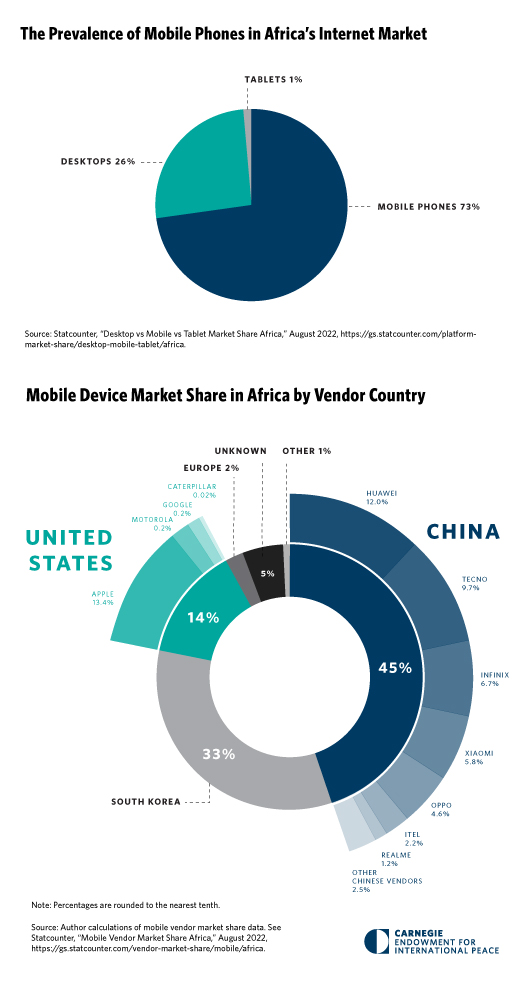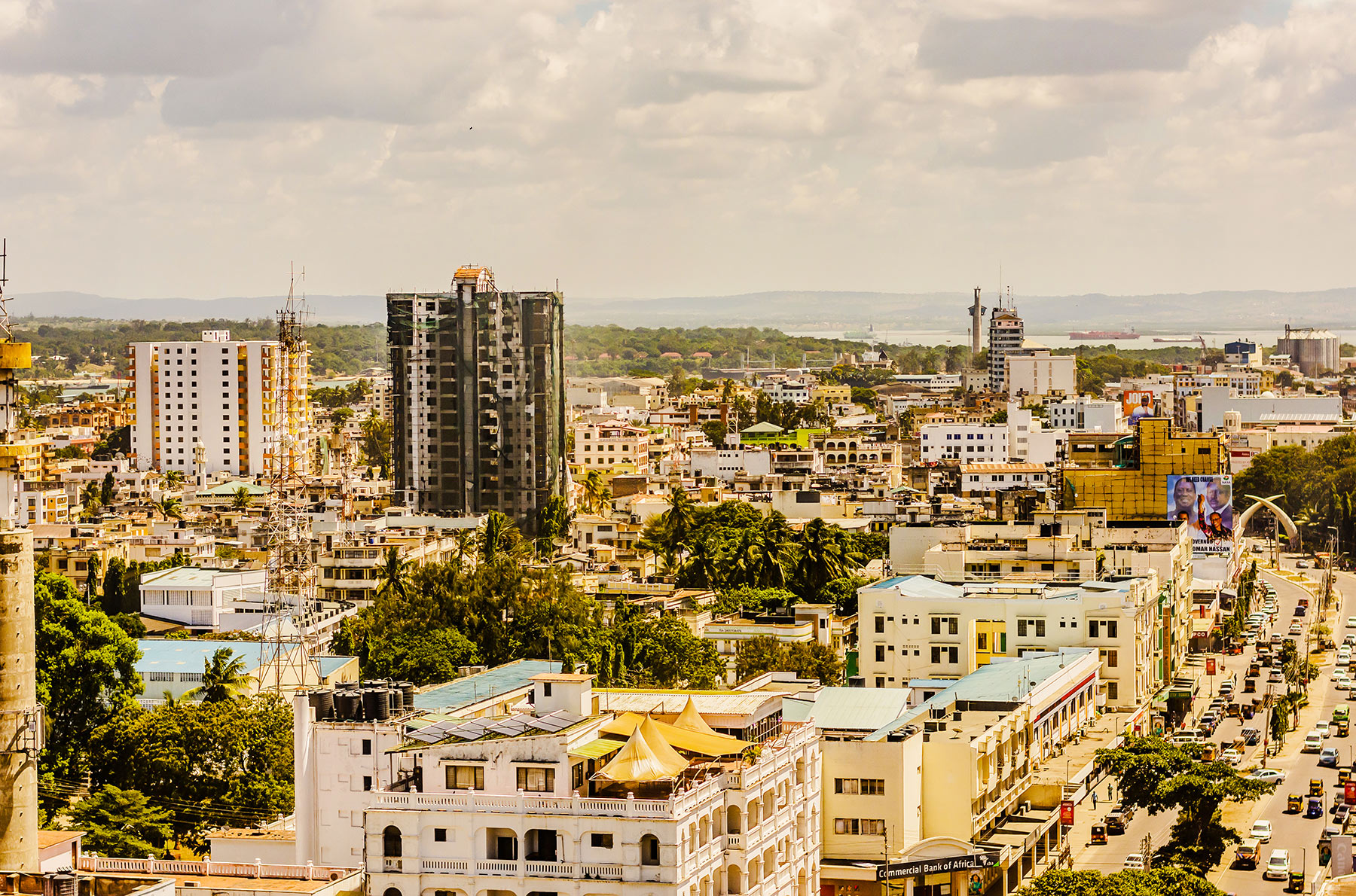OCTOBER 2022
Dear friends and colleagues,
“Decoupling” is one of the latest buzz words in Washington D.C. policy circles. Recent legislation and policies—from the now-signed CHIPS and Science Act to new Commerce Department restrictions on high-tech exports to China—all point to an acceleration of the Biden administration’s efforts to diversify technology supply chains as strategic competition between China and the U.S. intensifies.
Africa’s mobile phone market is one area that will be affected by U.S.- China tech decoupling. Africa is a mobile-first continent, where about 70% of people access the internet through mobile devices. Nearly half (45%) of these mobile devices are brands incorporated in China, followed closely by South Korean brands (33%), American brands (14%), and others, as we indicate in the October 2022 Chart of the Month. As Jane Munga and Kyla Denwood explain, current and future demand for mobile devices throughout the continent will allow mobile phone vendors to influence how millions of Africans connect to the internet. This latent demand also means that Africa’s projected population of 2.5 billion people by 2050 could shape the future of these global tech companies.
In September, the Carnegie Africa Program traveled to Cape Town, South Africa for the South African Presidential Climate Commission and the African Climate Foundation’s JET Knowledge Exchange and Learning Sessions. There, in partnership with the ACF, we co-hosted the global dialogue session “South Africa’s Just Energy Transition Partnership: A Model for Climate Financing for Africa?” The discussion first highlighted lessons from South Africa’s experience so far. Then, panelists from Indonesia and Senegal shared insights from the vantage point of countries just beginning the process of negotiating JET-P financing deals. Watch the video recording here.
As November’s COP 27 approaches, African governments are seeking to develop common positions that balance climate action, energy security, and economic development. We will be tracking these developments closely.
To stay informed about Carnegie Africa events and publications, sign up on our website or follow us on Twitter @AfricaCarnegie.
Sincerely,
Zainab Usman
Director, Carnegie Africa Program
CHART OF THE MONTH

October 2022 Chart of the Month
FEATURES
Watch Carnegie’s Africa Program and the African Climate Foundation host a panel discussion covering negotiations of the JETP, progress toward implementation in South Africa, implications for other African countries, and the changing role of the international community in mobilizing climate finance. Co-hosted with the African Climate Foundation
The international partners that help African countries overcome some of their seemingly intractable challenges and unlock their latent potential will reap significant economic and political gains. But the continent needs investment. Zainab Usman
DEVELOPMENTS ON OUR RADAR
- African countries to push for more fossil fuel projects at COP27. [Reuters]
- Behind the AfCFTA Guided Trade Initiative. [African Continental Free Trade Area]
- Google to build South African cloud in $1 billion Africa Plan. [Bloomberg]
- U.S. looks to Africa to diversify supply chains for critical minerals. [The Africa Report]
IN THE NEWS
- Africa Program director Zainab Usman was quoted in “Biden must prove his Africa strategy is no ‘tick the box’ exercise.” [The Africa Report]
